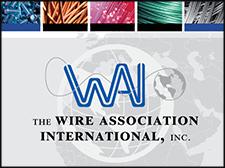The benefits of precision engineering
Precision engineering has taken many forms over the years, from highly skilled workers who spent tens of thousands of hours mastering their crafts to today where technology has developed to the point where machines are programmed to complete the tasks for us.
Precision engineering has taken many forms over the years, from highly skilled workers who spent tens of thousands of hours mastering their crafts to today where technology has developed to the point where machines are programmed to complete the tasks for us. One thing that remains the same is that there have always been key benefits to precision engineering for a variety of industries. In this article we are going to look at some of the benefits in today's society with how precision engineering currently operates.
Accuracy
It should not be a surprise to anyone that as precision engineering has moved away from being directly carried out by humans to, in some cases, a semi-autonomous process using CNC machining, that accuracy has improved. While master craftsmen could produce engineered parts with incredible accuracy using a variety of tools, the fact that the machines and tools were being controlled by humans who had to judge how far to go when machining a part always meant there was always room for mistakes. These mistakes could be minor and go unnoticed by both the engineer and client, or major and force the engineer to start producing a part again.
With today's precision engineering, where CNC machines produce parts based on CAD drawings, the machines are able to produce parts to the exact specifications approved by clients or designers. This has a range of benefits itself. One of which being, once a design has been approved, a part can be produced to the same exact measurements over and over again with no variation. Furthermore, for bulk orders this is extremely beneficial as even with large order of hundreds or thousands of parts, they can all be exactly the same.
Speed
As touched on above, being able to produce a large number of parts all to the same specification is really important when clients place a bulk order. What else is important, in today's business society, is being able to deliver this order to a set deadline or as quickly as possible. Thanks to modern precision engineering machines and techniques, the time it takes for parts to be manufactured has decreased. Not only are CNC machines more accurate than humans, but they are faster.
One of the key reasons for this is that machines do not require the same amount of time for breaks and rest that humans do. Before modern CNC machines were available, manufacturing was only possible for as long as a skilled worker was able to work. This therefore limited the amount of time they could work and produce parts. However, with CNC machines they can be left running and continually producing parts for much longer periods of time should the demand be there.
Safety
Workplace safety should be a key consideration for any precision engineering company. Thanks to modern machines, safety has improved significantly for people working in the precision engineering sector. While, in the past, workers had to work closely with exposed moving parts this is often no longer the case. With precision engineering methods such as spark erosion, the person responsible for the production of the part is not in direct contact with the metal and therefore the process is far safer.
The benefits listed above have helped a variety of industries, including those who operate directly in precision engineering sector. Others which have benefited include the wider manufacturing sector which, regardless of industry, all rely on parts either for their products or their production methods, which have been produced by precision engineering. Highly technical areas, such as the automotive, aviation and medial industries have also seen a significant benefit from precision engineering. It should also be noted that while the number of jobs for those highly skilled craftsmen with experience using traditional methods of manufacturing have reduced, there has been an increase in jobs available for others with new skill sets within the manufacturing industry.
Company bio - EDM Zone are an experienced and highly skilled precision engineering company who specialise in Wire EDM manufacturing. They have a high capacity to produce parts to exacting standards for a variety of industries with a fast turnaround - https://www.edmzone.co.uk/
Featured Product

